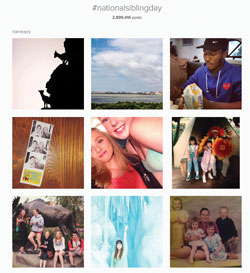Monmouth students and faculty had a dialogue surrounding the experiences of the LGBTQ+ community, both locally and nationally.
According to FamilyEquality.org, in 2020 approximately 4.5 percent of adults (those over 18) in the U.S. identified as LGBTQ+, which comes out to more than 11.3 million LGBTQ+ adults in the U.S.
Adriana Zefutie, psychology student and President of Monmouth’s Pride Club, said, “As a researcher, the major flaw of both estimation and self-report measures is that the number presented is probably not reflective of the actual amount of LGBTQ+ teenagers. Many are probably hesitant or completely against telling others their identity in the first place.”
Assistant Professor and coordinator for the School of Social Work’s LGBTQ+ Older Adult Project, Jeanne Koller Ph.D., agreed with Zefutie’s conclusion that LGBTQ+ individuals are underreported. Koller said, “This is due to stigma [of coming out] and related concerns.”
Furthermore, Nancy Mezey, Ph.D., Professor of Sociology and Dean of the Honors School agreed, “There are still many places right here in the U.S. where people may not feel safe if they were to come out as LGBTQ+ publicly.”
According to the organization Family Equality, there is no federal nondiscrimination law expressly protecting LGBTQ+ people in the U.S. as of 2020. Likewise, Freedom for All Americans reported that LGBTQ+ Americans aren’t fully protected from discrimination in 29 States.
Discrimination can highly impact a person’s decision to come out. “Mental health can be negatively impacted by staying in the ‘closet’; unfortunately, however, the same can be said about a person once ‘out of the closet’ due to discrimination and bias,” explained Koller.
Although coming out presents a multitude of difficulties, the realities of a person might change upon finding one’s community. Koller added, “Once a person cause one can integrate into the LGBTQ+ community for support, they can feel relief and live as their authentic self without the stress of carrying a ‘secret’ and ‘concealed’ identity.”
“Drawing on the research, there is ample evidence that those who struggle with gender and sexual identities are over eight times more likely to consider suicide or attempt suicide,” said Mezey. This number is even higher for men who identity as bisexual.
Mezey continued, “LGBTQIA+ youth are up to four times more likely to experience sexual abuse, parental physical abuse, or assault at school than non- LGBTQIA+ students.”
“Based on the research, there is no doubt that the suppression of—or even grappling with—one’s gender and sexual identities causes mental health problems or other problems for youth, in the age range of most Monmouth students.” These problems can include, but are not limited to, suicidal thoughts or actions, self-harm, depression, anxiety, substance abuse, risky sexual behavior, and low self-esteem.
Zefutie wishes Monmouth University had a stronger LGBTQ+ community presence, but believes Monmouth is an open and welcoming campus. Zefutie believes the Intercultural Center is a great addition to the University. She said, “The Intercultural Center, and Monmouth as a whole, have done a great job enforcing and introducing policies for using one’s chosen name and pronouns.” The Chosen Name Initiative was put into place in the Fall 2022 Semester at Monmouth “As part of our ongoing efforts to foster a welcoming and inclusive campus community,” according to President Leahy.
Monmouth’s Discrimination Policy supports “equal opportunity” and “affirms the right of its faculty, staff, and students to work and learn in an environment free from discrimination and harassment,” according to Monmouth University’s Student Handbook.
For Monmouth students or faculty struggling with their sexualities or identity, Zefutie recommends getting in touch with “The Intercultural Center to meet others and find a sense of community and Monmouth’s Counseling and Prevention Services (CPS) to have someone to talk to.”
In order for Monmouth University to be a better ally towards the LGBTQ+ community, Mezey said that steps such as infusing LGBTQ+ studies into Monmouth curriculums, social events, creating informal spaces for Monmouth’s LGBTQ+ faculty, students, and staff, and ensuring that Monmouth’s CPS has staff who are specifically trained to work with LGBTQ+ students can be taken.
The Pride Club is also planning to host new social events after the pandemic put a halt to their plans.
These events include a yearly panel for Monmouth students and faculty to learn about LGBTQ+ leaders on Campus, celebrations for National Coming Out Day in October, and a tie-dye event in the Spring.
While the Pride Club aims to provide an inclusive, safe space on campus, theater could be another possible outlet for LGBTQ+ students seeking community. “Theater is all about representation, and when people can see themselves reflected on a public stage, they may feel validated, seen, heard, and valued as an integral part of society,” said Associate Professor of Communication and Performance Studies, Deanna Shoemaker, Ph.D.
Tim Pakrad, a sophomore English student, said, “Even before I came out as queer, I knew that the theater was a space for queer people. In my experience, putting on musicals and plays when I was in the closet gave me the space to ‘act out,’ I suppose.”
Recently, Monmouth put on a production of “Fun Home” which, according to Monmouth’s website, follows main character Alison throughout her life, as she grows to understand her sexuality. As Alison is discovering herself, she learns that her late father who passed away from suicide struggled with his sexuality throughout his life.
Pakrad, also a cast member of “Fun Home,” said, “I think theater does have a toxic history in its representations of queerness. ‘Fun Home’ at Monmouth was my first time actually portraying actual queer characters as a queer performer. It was very fulfilling to make that real without feeling taken advantage of or misrepresented.” Pakrad played three roles in the production: the characters of Roy, Mark, and Bobby Jeremy. Both Roy and Mark were students and lovers of Bruce (main character Alison’s father,) while Bobby Jeremy was a figment of Alison’s imagination as a child.
Pakrad was skeptical as to how successful this portrayal could be in a musical and said that a “majority of audiences found parts of the show that were touching to me to be hilarious. While that dissonance was slightly frustrating to me, it doesn’t mean they didn’t appreciate it.”
Pakrad believes that stories like “Fun Home” need to be told more often. “Most queer people I know aren’t struggling with identity, but visibility and community! Monmouth’s queer student body should know they’re not alone. You do not have to be a theatre person. You do not have to be an athlete. You do not have to ‘look’ or ‘act queer.’ Just to say it one more time, you are not alone.”
“You might face tension or very hard circumstances as a result of your identity— but you have to push forward and have love for yourself,” concluded Zefutie.



